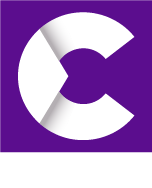
Activities
CLEVER will put together both the know-how in VPCs management of MU and UPJS and the experience in ICT based medical teaching and assessing of UMF, in the benefit of all three partners.
CLEVER will put together both the know-how in VPCs management of MU and UPJS and the experience in ICT based medical teaching and assessing of UMF, in the benefit of all three partners.
Consequently, MU and UPJS will lead the activities specific to VPCs development and management, including ICT platform and UMFIASI will elaborate the VPCs under the scientific authority of the medical societies, associated partners of CLEVER.
During CLEVER, 35 teachers and specialists from 12 clinical disciplines and 5 theoretical sciences of the three partners will create 24 virtual patient cases that will be used by all their students and will be exported through ROEDUNET and MEFANET to all more than 100 teachers and 20000 students registered in the faculties of medicine from Romania, Czech Republic and Slovakia and will be available, upon request, to more than 200 teachers and 40000 students from European medical sciences field.
Those 35 teachers and specialists included in the TTG will develop the virtual patient cases and they will be designated by each partner from the staff of those 12 clinical disciplines and 5 theoretical sciences.
The results of CLEVER will consist of:
- students of UMFIASI will have at their disposal a new modern tool, universal available, to practice and to improve their skills using the VPCs implemented in their e-learning platform through an new ICT management system;
- teachers of UMFIASI will be capable to develop and manage VPCs using the methodology and the ICT platform that they will be trained in;
- teachers and students from all partners will be able to use at least 24 new VPCs based on an improved methodology
- teachers and student from all European medical schools will be able to use the new 24 VPCs available through the national educational networks MEFANET and ROEDUNET, also associated partners of CLEVER.
There are five anticipated sets of activities with different means of recruitment to be performed among both target groups – students and teachers:
(1) Exploratory data analysis and needs analysis
Teachers and ICT experts from UMFIASI, MU and UPJS will be addressed with on-line surveys (through a free available electronic data capture system) followed by interviews and/or focus groups. The main communication channels will be used to invite the respondents: university staff email-lists, posts at the institutional web-sites, information published inside the e-learning platforms of the partner institutions. In addition, a wider audience will be reached through the associated educational networks – ROEDUNET and MEFANET (annual conferences, information bulletins, web-sites, posts at the related profiles at social media such as Facebook, Twitter and LinkedIn).
(2) Joint staff training
The short-term joint staff training will help the young clinician-educators from UMFIASI to get the expertise from the trainers coming from MU and UPJS. On the other hand, the staff from MU and UPJS will be trained on ICT issues around platform integration and interoperability – from the UMFIASI experts. All trainees will be carefully selected based on
- their interest in the change of pedagogy habits,
- language competences,
- ICT competencies,
- recommendation from their department heads.
(3) VPCs authoring, reviewing, translating, implementing
The trained staff will become the authors of VPCs and later the implementators into curricula of their courses. The main portion of motivation will come during the face-to-face training sessions and additional feedback and encouragement will come later during the peer-to-peer communication among authors and reviewers. The reviewers and translators will be part of the project team.
(4) Interactive sessions and workshop during multiplier events
Students and teachers at UMFIASI, MU and UPJS and the associated MEFANET and ROEDUNET educational networks will be repeatedly invited to all multiplier events of the CROESUS project. All of them will be organized as a part of already existing and well-settled international conferences. Besides CLEVER’s communication channels (project web-site, social networks profiles) the media associated to the anticipated conferences will be used as well (e.g. advertisements in MEFANET Journal – the scholarly journal issued by MEFANET).
(5) Evaluation data collecting activities
The same manner of communication will be used as in (1). Moreover, students who started their clinical education and practice (3rd to 6th year) will be invited to evaluation activities which will take place at the workshops organized in the later stage of the project.
The medical educators (cca 200) addressed by the CLEVER project, who will benefit indirectly from the project outcomes will be able to:
- take part in the workshops and interactive sessions during the dissemination events;
- use and reimburse the created large educational content (interactive VPCs available in four European languages) for their teaching practice;
- inspire themselves from the results of the evaluation study showing effects of the VPC/CBL approach to clinical education.
The medical students (cca 40 000) addressed by the CLEVER project, who will benefit indirectly from the project outcomes will be able to:
- take part in the workshops and interactive sessions during the dissemination events;
- use the created interactive VPCs available in four European languages for their self-directed learning;
- use the acquired skills and competencies in clinical reasoning as an important value in the labor market.
